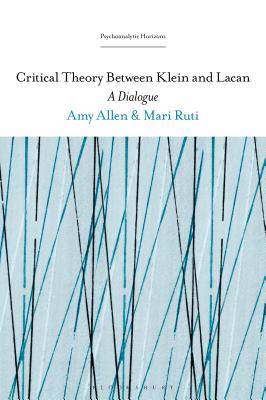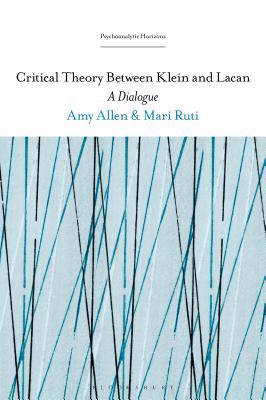
- Afhalen na 1 uur in een winkel met voorraad
- Gratis thuislevering in België vanaf € 30
- Ruim aanbod met 7 miljoen producten
- Afhalen na 1 uur in een winkel met voorraad
- Gratis thuislevering in België vanaf € 30
- Ruim aanbod met 7 miljoen producten
Zoeken
Omschrijving
Critical Theory Between Klein and Lacan explores convergences and divergences in the psychoanalytic theories of Melanie Klein and Jacques Lacan, with a special focus on the implications of their work for critical theory, broadly construed. The book is co-authored in the form of a dialogue between Amy Allen, a prominent representative of Frankfurt School critical theory with expertise on Klein, and Mari Ruti, a leading Lacanian critical theorist.
Klein and Lacan are among the two most important and influential psychoanalytic theorists after Freud. Their work has profound implications for how we understand subjectivity, intersubjectivity, autonomy, agency, desire, affect, trauma, history, and the potential for individual and social change. Allen and Ruti offer distinctive interpretations of Klein and Lacan that not only bring out their complexities but also highlight productive points of convergence where most psychoanalytic and critical theorists see irreconcilable differences. The book is organized around key themes that cut across and through the work of Klein and Lacan, culminating in an assessment of the implications of their theories for thinking about politics.Specificaties
Betrokkenen
- Auteur(s):
- Uitgeverij:
Inhoud
- Aantal bladzijden:
- 272
- Taal:
- Engels
- Reeks:
Eigenschappen
- Productcode (EAN):
- 9781501352263
- Verschijningsdatum:
- 8/08/2019
- Uitvoering:
- Hardcover
- Formaat:
- Genaaid
- Afmetingen:
- 142 mm x 218 mm
- Gewicht:
- 430 g

Alleen bij Standaard Boekhandel
+ 593 punten op je klantenkaart van Standaard Boekhandel
Beoordelingen
We publiceren alleen reviews die voldoen aan de voorwaarden voor reviews. Bekijk onze voorwaarden voor reviews.








